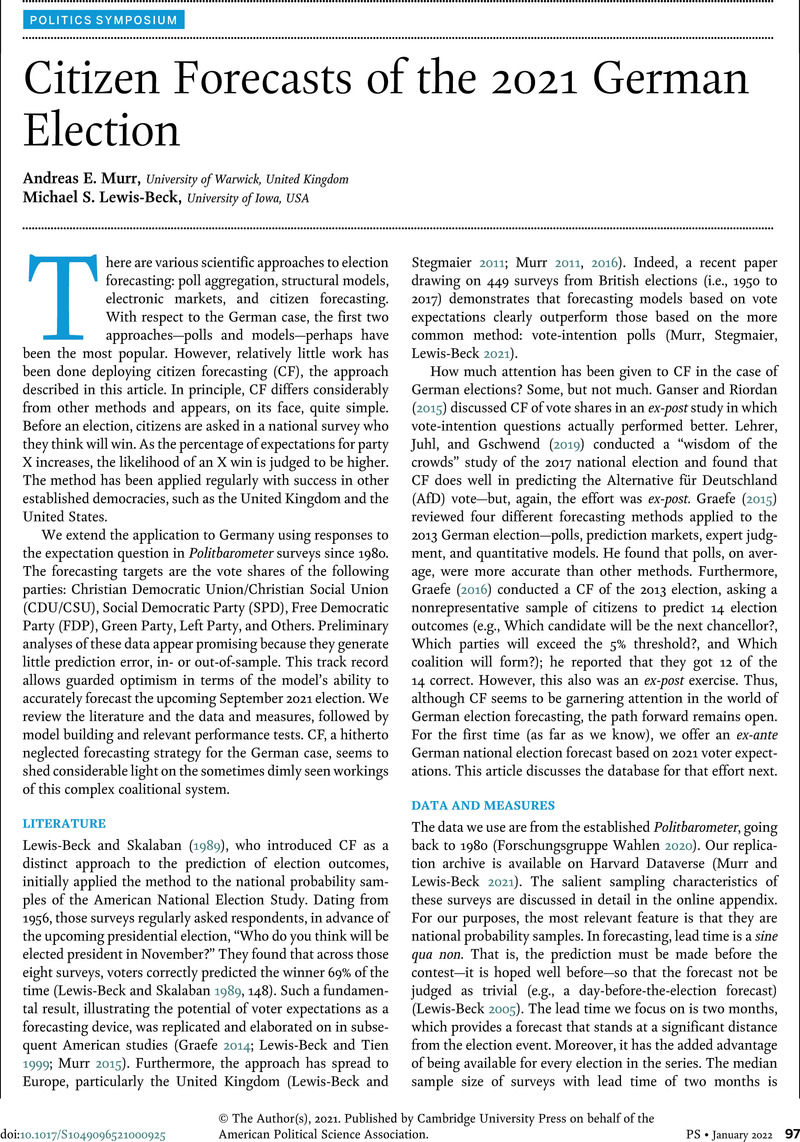Crossref Citations
This article has been cited by the following publications. This list is generated based on data provided by Crossref.
Jérôme, Bruno
and
Graefe, Andreas
2022.
Forecasting the 2021 German Federal Election: An Introduction.
PS: Political Science & Politics,
Vol. 55,
Issue. 1,
p.
61.
Graefe, Andreas
2022.
Combining Forecasts for the 2021 German Federal Election: The PollyVote.
PS: Political Science & Politics,
Vol. 55,
Issue. 1,
p.
69.
MONGRAIN, PHILIPPE
2023.
With a little help from my friends? The impact of social networks on citizens' forecasting ability.
European Journal of Political Research,
Vol. 62,
Issue. 4,
p.
1320.
Leininger, Arndt
Murr, Andreas E.
Stoetzer, Lukas F.
and
Kayser, Mark A.
2024.
Wahlen und Wähler.
p.
383.



